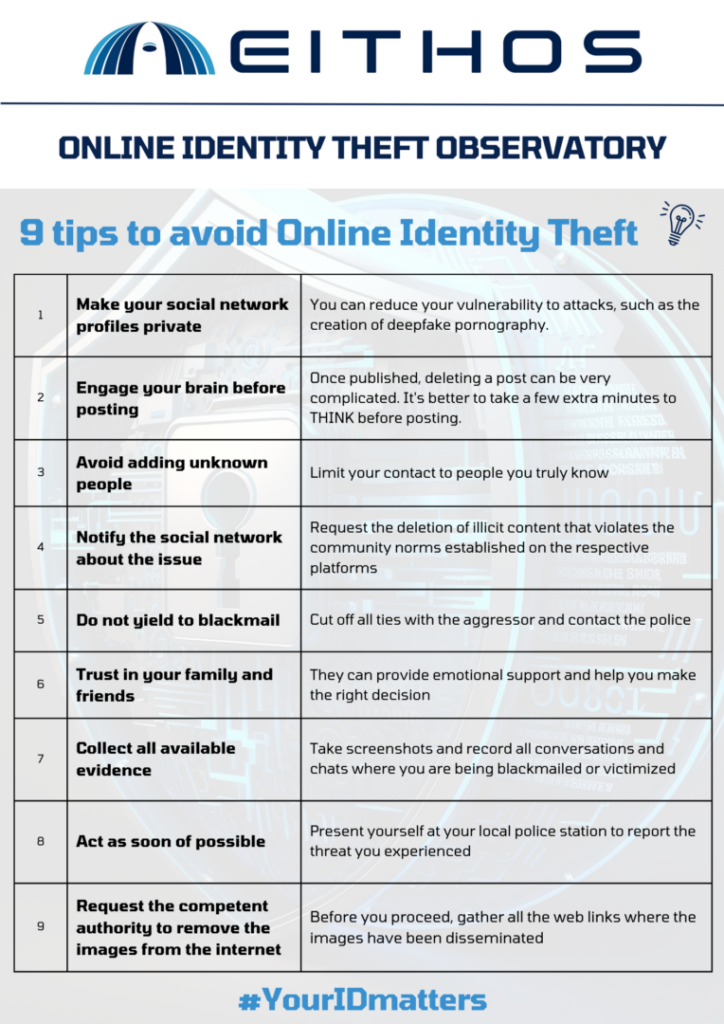
Identity theft cases: a window on last years
In recent years, with the development of Information and communication technologies (ICT) and the rise of Artificial Intelligence (AI), there has been an increase in identity theft cases. Consequently, new criminal methods involving AI are being developed, such as creating fictitious audio recordings using the voices of acquaintances, fake photographs, AI-generated pornography and other such practices.
Community Policing Delegate role
The role of the Community Policing Delegate is crucial in preventing such situations by acting from a preventative standpoint, as well as in detecting cases and intervening thereafter. In this specific case, the Delegate’s role involves advising victims throughout the crime process, assisting with necessary procedures, and guiding them through the process between different works.
Below, we are going to compile a series of tips to avoid becoming a victim of identity theft on social networks:
Tips to avoid being victims of OIDT

1. Make your social networks private. It is extremely important to be aware of the significance of privatizing your social media profiles. Closing your circles will make you less vulnerable to attacks such as deepfake pornography creations.
2. Think before you post. Before publishing, take a moment to think. If someone in my family saw this, what would they say? Will I regret seeing this post in a few years? Sometimes it is necessary to stop and think about what we want to achieve with that post and if it is really necessary.
3. Do not add unknown people. Just like privatizing social networks, it is essential to limit our contacts to people we truly know or profiles of social interest. Not accepting strangers is crucial for the first tip on this list to be effective.
4. If you are a victim of this type of crime, consider seeking support and advice from your family. In these situations, it is necessary to seek emotional support from family and friends to help us make the right decisions.
5. Do not give in to blackmail. Never give in to blackmail in these situations. It is vital to report to the police and break all relations with the aggressor.
6. Inform the social network of the problem. Also, request the deletion of illicit content for violating the community norms established on the respective platform.
7. Gather all possible evidence. Obtain all possible evidence about the crime you are experiencing. Take screenshots and recordings of all conversations and chats where you are being blackmailed and victimized. It is very important to file the most complete report possible.
8. Report to the police. Go to your nearest police station to file the corresponding report. In these cases, time is crucial, so it is important to act as soon as possible.
9. Request the competent authority to remove the content from the Internet. If these images have been posted online, you can request the competent authority, through established communication channels, to delete those images from the Internet. For this, gather all the web links where the images have been disseminated. In Spain, the competent authority in this regard is the Spanish Data Protection Agency.
Sources
This article is provided by the Spanish Secretariat of State for Security (SES) one of the partners of the Eithos’ consortium. The SES falls under the Ministry of Interior and is responsible for ensuring the free exercise of the constitutional rights, to direct and supervise the police forces, coordinate the international police cooperation, to execute the government’s policy about organized crime, terrorism, human trafficking, and money laundering and related crimes.
